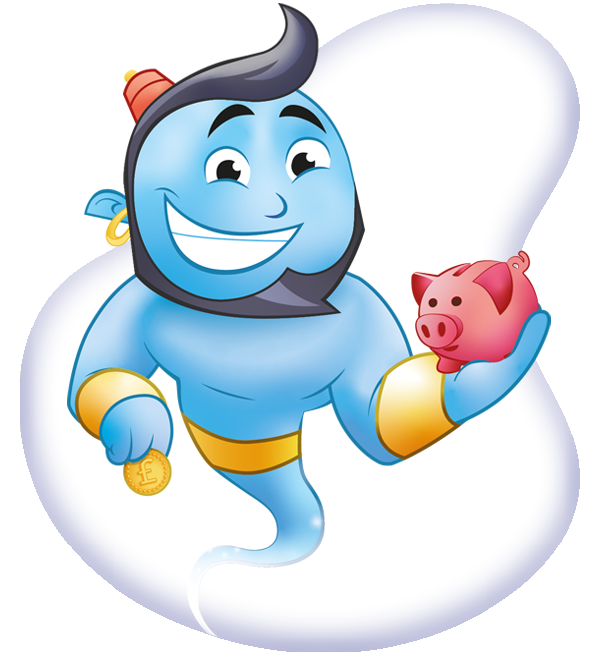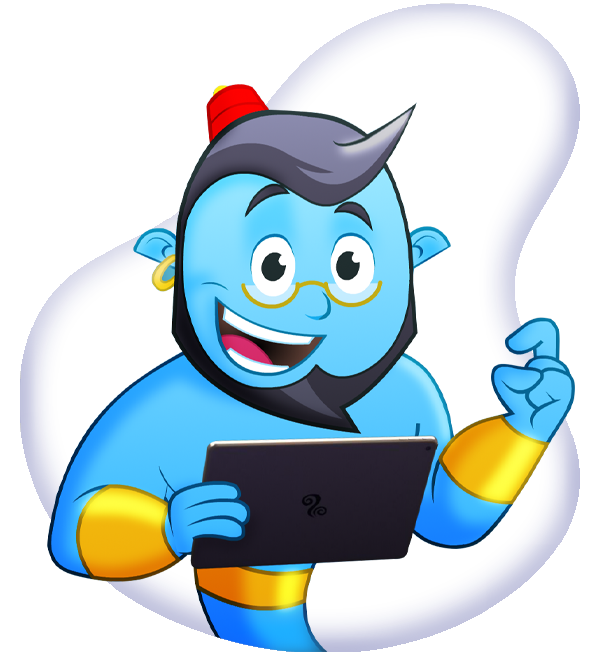Full fibre broadband deals
Compared to older types of broadband, full fibre broadband uses improved technology to provide you with a faster and more reliable internet connection. Think of it this way: if standard fibre is a commuter train, full fibre is a bullet train!
In this guide, we’ll explore in more detail how full fibre works, whether you can sign up and if it’s worth it. Plus, the important subject of how much it will cost you.
We’ve done the hard work for you. We’ll showcase the wide selection of full fibre broadband deals currently available in the UK and explore the best broadband providers that offer fibre full products. With help from Broadband Genie, you can find the perfect package quickly and easily. Let’s dive in!
What is full fibre broadband (FTTP)?
Full fibre broadband (FTTP) uses advanced fibre optic cables to deliver ultrafast, reliable internet directly to your home. This technology supports speeds from 100Mb to over 1Gb, ensuring seamless multitasking on multiple devices.
Some perks of full fibre include:
- Buffer-free streaming: Enjoy ultra-HD content without interruptions
- Faster downloads: Download large files or games in minutes instead of hours
- Seamless multitasking: Perfect for homes with multiple devices online simultaneously
| Technology | Speed Range | Tech | Best for |
|---|---|---|---|
| FTTP (Full Fibre) | 100Mb – 1Gbps+ | Uses fibre optic cables directly to home | Large households, online gamers, streaming |
| FTTC (Part-Fibre) | Up to 74Mb | Fibre to cabinet, copper to home | Smaller households, casual browsing |
| Cable Broadband | 100Mb – 1Gbps | Hybrid fibre-coaxial cables | Homes in Virgin Media areas |
Can I get full fibre broadband in my area?
Check full fibre availability with Broadband Genie’s postcode tool. If speeds over 100Mb appear (besides Virgin Media), FTTP is likely available. For rollout updates, use Openreach or CityFibre checkers.
But there may also be services that run their own networks. Keep your eyes peeled for any direct mail advertising through your door. This is a common way for smaller, full fibre providers to spread their news.
-
What’s the difference between Superfast, Ultrafast and Gigafast Fibre?
Superfast fibre broadband
This refers to broadband with a download speed of 30Mb-100Mb.
Ultrafast fibre broadband
Ultrafast broadband usually refers to an internet service with a speed of 300Mb+. However, it may also be used by some providers to refer to broadband packages of 100Mb+.
Gigabit broadband
An internet connection that offers a download speed of 1 gigabit per second (1Gbps/1Gb) or more. With a speed of 1Gb, you could potentially download a feature length film in just a few seconds!
Is full fibre broadband worth it?
| Pros | Cons |
|---|---|
|
|
How to choose the best full fibre broadband deal
Broadband deals come with long contracts, up to 2-years. It can be very tricky to cancel a broadband contract early without paying an expensive early termination fee. Because of this, it’s important to think carefully about how your home uses its internet, what’s wrong with your current provider, and whether there are any other add-ons you’d like.
For example:
Speed requirements
A basic plan with 100Mb speeds is sufficient for most small households. Large families or passionate online gamers may need speedier ultrafast options (300Mb+).
Faster speeds can often mean a better experience, but it’s worth bearing in mind that it will be much easier to upgrade your service up a notch if it’s not up to speed than it will be to downgrade.
Find the best 100Mb deals now!
Budget-friendly options
Full fibre deals don’t have to cost a fortune. Many providers offer affordable full fibre packages with competitive pricing for entry-level speeds like 100Mb. Plus, if you make use of rewards such as Bill Credits or gift cards, you can get the effective monthly cost down even more.
Take a look at this great deal below as an example:
Some deals come with the option to add on bundle features such as TV channels, home phone packages or mobile phone SIMs. Take the time to price up how much these services would cost you individually before committing to a long contract.
Which full fibre packages offer good customer support or other extras?
The best fibre broadband deal may be subjective. Everyone’s needs and priorities are different. But there are some hints to finding a gem, or dodging providers with the worst customer service.
Check customer reviews
Get opinions from real customers in our Broadband Reviews section. All Broadband Genie customers are invited to share the experience of their internet provider.
You can also get some hints from our Broadband Awards winners. Every year, we ask thousands of broadband customers across the country about the experience they’ve received with their provider and rate them for categories such as ‘Best Value for Money’.
Alongside that, Trustpilot can be a good place to gauge the general mood of customers, as can communities such as Reddit. Just remember that people tend not to appear on these unless they have a problem. Those who are happy with their broadband service aren’t always visible.
Look out for the extras
Don’t forget to explore the extras of a service, such as whether you receive a free router or if there’s no upfront cost. This can all add to the value of a service. We list as many of these perk as we can in the ‘full details’ section in our tables.
Who is the best full fibre broadband provider?
There is no set answer for this. The best full fibre broadband provider will depend on availability, what you typically use your internet for at home and your budget.
Here’s a round-up of the top full fibre providers you may wish to consider for your next switch.
| Provider | Full fibre speed range | Cost range (Broadband Only) | Contract Length (months) |
|---|---|---|---|
| BT | 150Mb - 900Mb | £28-£41 | 24-months |
| Virgin Media | 54Mb - 1.1Gb-2Gb | £24-£37 | 24-months |
| Sky | 75Mb - 900Mb | £26-£38 | 24-months |
| Vodafone | 150Mb - 910Mb | £25-£36 | 24-months |
| Fibrely | 80Mb - 1.1Gb | £24 - £36 | 18-months |
| Rebel Internet | 109Mb - 944Mb | £35 - £55 | 24, 12, 1-month |
| NOW Broadband | 75Mb - 300Mb | £23 - £30 | 24-months |
BT Full Fibre
BT offers reliable FTTP broadband with speeds up to 900Mb and reward cards for new customers.
Expect a reliable service with UK-based call centres if you need them.
TV bundles are available with the EE TV service.
Virgin Media
Virgin Media offers cable broadband as an alternative for homes without FTTP coverage, with options for broadband-only or bundles including TV and phone.
Its new Flex TV option, offers the chance to sign up for a TV service on a rolling monthly basis. This is great news for those who don’t want to commit to an expensive Broadband and TV package for a whole 24-months.
-
Virgin Media Cable Broadband - is Virgin full fibre?
Virgin Media used to be known as ‘cable broadband’. But it now refers to its product as ‘fibre broadband’. Virgin operates its own cable network and uses a different type of fibre broadband to other providers - a Hybrid Fibre Coaxial cable (HFC). A coaxial wire is made up of copper cables that are surrounded by an insulating material.
Cable broadband can deliver faster speeds than a standard fibre connection, which is why we’ve listed Virgin Media deals here. However, unlike full fibre broadband, it has a habit of losing performance over longer distances, so it’s not quite a reliable.
Sky Broadband
In 2025, Sky is one of the least complained about providers in the UK. Along with a wide selection of full fibre deals that come with no traffic management, you should be all set for a smooth ride, even during peak times.
Sky is a popular choice for those who want to make use of TV packages. You can also include a subscription for Netflix into your deal. Just be warned, things start getting a little expensive if you’re not careful. NOW TV is a good alternative for those who want more flexible TV options.
As a bonus, you can also make use of Wi-Fi hotspots across the UK as part of your package.
Vodafone
If you’re keen to sign up to a full fibre broadband package without many extras, Vodafone is a good option. We regularly see very competitive offers for new customers, with large gift vouchers on offer if you time it right.
Fibrely
If your local Openreach fibre network has been upgraded to full fibre, there’s a good chance you sign up to Fibrely. It has wide availability for many UK homes. Unlike most other broadband providers, listed on this page, there’s a fixed monthly price in place for all customers. That means you won’t get any nasty surprises in the spring.
NOW Broadband
There's a small but affordable choice of full fibre plans available from NOW Broadband. These packages are powered by Sky Broadband, and are available to homes that have access to an upgraded Openreach full fibre network.
One of the main perks of NOW Broadband is the flexible add-ons, especially for premium TV. If you only think you'll make use of Sky Sports or Sky Atlantic for a limited time, this gives you the freedom to dip in without being obligated to pay for a long contract.
Compare TV and Broadband Bundles
Rebel Internet
Rebel is a great option if you want to sign up to Full Fibre, but you would rather not commit for two years. That’s now sadly a rare option! Rebel’s 24 and 12-month deals also come with a fixed price promise, and also many packages come with an Amazon gift card.
Other full fibre providers
There are plenty of other broadband providers who offer full fibre broadband but have a smaller coverage area. Popular options on Broadband Genie include the likes of Hyperoptic and Gigaclear. You can read more about these in our guide: ‘what are alternative network providers?’
How much should I be paying for full fibre broadband?
The price of a full fibre broadband package will depend on:
- Your chosen speed
- Your contract length
- Your provider
- Extras / bundle options
One thing’s for sure: you don’t have to spend a fortune to sign up for a full fibre deal. In fact, entry-level full fibre deals with speeds around 100Mb can often end up being cheaper than part-fibre. This is fast enough to serve most homes.
Of course, faster packages and those with extras such as TV subscriptions and included calls will cost you more. Remember that unless there's the option for flexible add-ons, you will need to be prepared to pay for any extra services for the duration of your contract.
Larger families of more than five should aim to sign up to a full fibre deal of at least 300Mb. For a broadband only deal without a TV service, there should be plenty of options for packages costing less than £30 per month.
Annual broadband prise rises
Pay attention to the message ‘price may rise during contract’ on our listings. Unfortunately, many of the major providers raise their monthly costs every Spring, regardless of whether customers are in contract or not. The average annual price increase in 2025 will be an extra £3 per month.
If you’re keen to get more transparency in a deal, full fibre providers who offer a fixed monthly price include:
|
|
Who offers entry-level 100Mb full fibre deals?
All providers who offer a full fibre service will have 100Mb+ deals. The cost of these can be extremely competitive.
The easiest way to find 100Mb deals is to enter your postcode into our deals checker and use the filters to search by ‘100-300Mb’ speeds. But you can also sort by ‘Monthly Cost (low to high)’ if you’re looking for a bargain. Exclusive offers from Broadband Genie could mean you can get an even faster price for cheaper.
Get affordable 100Mb FTTP packages today
FAQs about Full Fibre Broadband
-
What’s the difference between full fibre and regular broadband?
Most standard broadband connections only use fibre cables up to the street cabinets. The final link is then completed using a regular copper telephone line, or a coaxial cable for Virgin Media. There are no copper wires involved with FTTP. This is why it’s also known as ‘Fibre To The Premises’.
Copper wires are older technology and doesn’t provide reliable broadband like fibre optic. Upload speeds are also significantly faster and can be as fast as downloads. This is called a ‘symmetrical service’.
-
How do I switch providers easily?
Switching broadband has recently got a lot easier thanks to a new system called ‘One-Touch Switch’. As long as you’re out of contract with your current provider, you can switch seamlessly without the need to cancel your current service.
Find a full fibre deal on Broadband Genie and click the ‘Get Deal’ button. Complete the checkout and follow the instructions. Your new provider will be responsible for arranging the transition and will let your existing provider know you’re leaving. In most cases, you will have minimal downtime; your previous service won’t be disconnected until your new one is set up and tested.
-
Will full fibre broadband work in rural areas?
An increasing number of rural areas can now sign up to a full fibre broadband service. Some big-name providers offer rural broadband through the Openreach network, but you’ll tend to find more luck signing up to a smaller, local provider. For example, Gigaclear is specifically set up to offer faster broadband for rural spots.
-
Can I get full fibre without phone line rental?
Yes. As full fibre broadband doesn’t use BT Openreach telephone line, there is no need to pay extra line rental. However, there may be extra installation costs or set-up fees to pay.
-
Do I need an engineer to install full fibre?
Unless your home has previously been connected to full fibre broadband, you’ll need an engineer visit.
To get hooked up to FTTP broadband, your property will need external and internal work. First, engineers will link your home to the network by connecting a line to an external box. A hole will then be drilled through the wall to connect the fibre optic cable to a box inside your home.
-
Can I add calls to a full fibre package?
Most full fibre providers offer digital phone calls as an optional extra. Typically, you’ll pay around £10 per month for phone services, which will usually come with inclusive calls.
Expert Summary
A full fibre broadband (FTTP) service connects you to the internet through high-quality fibre optic cables at high speeds. Most full fibre deals offer minimum speeds of around 100Mb, but can be as fast as 1Gb, or more!
The higher speeds that a full fibre service offers can be very beneficial for larger households or those who want a more reliable broadband service. It’s especially helpful if there are several devices online at once, so great if there are several people streaming, carrying out video calls or online gaming at any one time.
Although full fibre is more widely available across the country than it used to be, it only covers just over 78% of UK homes. But expect that figure to rise over the next year. The copper telephone lines that slower, standard fibre broadband relies on is due for switch-off by January 2027. This means providers are very keen to install more full fibre options, and there are an increasing number of competitive deals available.
If you’re looking into FTTP broadband deals for new customers, the place to start is our comparison table. Check now to see if full fibre is available in your area!


